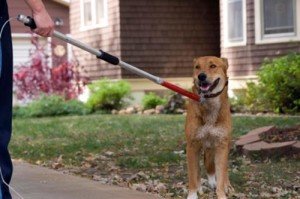 If you have an interest in law enforcement and know you’d also enjoy working with animals, a career as an animal control officer could be a great match for you. Most opportunities exist at the municipal level, as well as with non-profit organizations devoted to animal welfare.
If you have an interest in law enforcement and know you’d also enjoy working with animals, a career as an animal control officer could be a great match for you. Most opportunities exist at the municipal level, as well as with non-profit organizations devoted to animal welfare.
What Do Animal Control Officers Do? $19,780
None
Short-tern on-the-job training
234,900
23%
54,000 SOURCE: US Bureau of Labor Statistics
None
Short-tern on-the-job training
234,900
23%
54,000
An officer is distinctly a law enforcement professional defying the stereotype of an animal control officer is an individual who catches and impounds animals suspected of being dangerous. The National Animal Control Association (NACA) says that as an officer, you might work in field or shelter operations. An Animal Control Officer is responsible for the following:
- Investigate suspected animal cruelty
- Testify in court
- Rescue an animal caught on a roof
- Enforce local licensing laws
- Help relocate colonies of stray animals
- Write detailed reports and keep records of animals
- Serve as an adoption counselor
- Manage a shelter
- Run a kennel
- Be a euthanasia technician
Job Outlook
According to the Bureau of Labor Statistics (BLS), job growth for animal care and service workers is estimated at 23 percent between 2010 and 2020, an increase of 54,000 jobs, or faster-than-average growth. BLS indicates that if you choose a career in animal care, you can expect a mean hourly wage of $16.09, or $33,470 a year. However, for those who make up the top 10 percent of earners, compensation is $24.39 per hour, or $50,730 annually.
NACA says the greatest animal control opportunities are in management and investigator positions, which average $30,000 to $45,000 in mid-sized communities and $50,000 to $85,000 in metropolitan areas. Occassionally, compensation can be even higher, based on a number of factors.
Additional Responsibilities
If you find this blend of law enforcement and animal contact intriguing, you probably place a high value on protecting pets and people. The work is fast-paced and varied. Animal control officers derive a tremendous amount of satisfaction in helping lost, sick, abandoned and abused animals.
However, many officers are unsung heroes. The public sometimes has little understanding of what the job entails until an animal bites a youngster or a pet. You might sometimes find local policies on euthanasia and population control hard to accept. The loss of some animals due to illness or euthanasia and witnessing the effects of abuse can be stressful, even heartbreaking. Some positions require long shifts and the willingness to be on call on some weekends and holidays.
Overall, however, these roles are critical to the successful protection of our communities – while helping control and protect our animal population.
How to Enter This Career
The qualifications you need to become an animal control officer vary greatly from one state to another and among communities. Begin gathering information by contacting an organization that appeals to you as a prospective employer to learn what its requirements are. For example, working in Los Angeles requires graduation from the police academy. Here are guidelines on general requirements common to most employers:
- Experience with animals. You might work for pay or as a volunteer at a shelter, in an animal hospital, at a pet grooming shop or as a pet sitter or dog walker.
- Background checks. They’re usually mandatory
- Drug screening. Also typically mandatory.
- Driver’s license. Some states might require a specialized license to drive certain vehicles.
- High school diploma/GED. Don’t consider entering the career without one or the other.
- Additional training. Depending on the community or organization where you’d like to work, you should consider additional training. Examples include an associate’s degree in veterinary technology from a community college and programs in animal care offered by a technical school. To advance, you might need specialized training in areas such as chemical capture or kennel management. Some states require certification for animal control officers. The NACA 100 Training Academy offers four levels of certification.
Since animal control is one of the fastest-growing occupations, you should encounter many opportunities if you opt to enter this exciting law enforcement career.